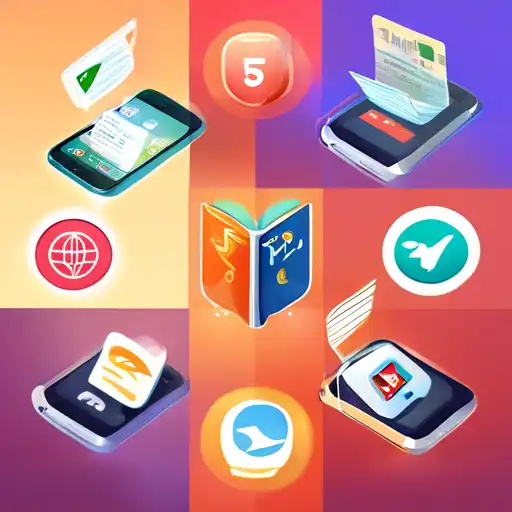Introduction to Language Learning Apps
In today's globalized world, learning a new language has never been more accessible, thanks to the plethora of language learning apps available at our fingertips. Whether you're a beginner or looking to polish your fluency, these apps offer a convenient and effective way to achieve your language learning goals. Here, we explore the top 5 apps that stand out for their innovative approaches to teaching languages quickly and efficiently.
1. Duolingo: Gamified Learning for All Levels
Duolingo has revolutionized language learning by turning it into a game. With its user-friendly interface and bite-sized lessons, it's perfect for learners of all levels. The app covers a wide range of languages and uses repetition and visual cues to reinforce learning. Its streak feature also motivates users to practice daily.
2. Babbel: Tailored Lessons for Practical Use
Babbel focuses on getting you conversational as quickly as possible. Unlike other apps, Babbel tailors its lessons based on your native language, making the learning process more intuitive. It's ideal for those who want to focus on practical vocabulary and grammar for real-life conversations.
3. Rosetta Stone: Immersive Learning Experience
Rosetta Stone is one of the most reputable names in language learning. Its immersive method teaches languages through context, using images, text, and sound without translations. This approach encourages thinking in the new language, significantly improving retention and fluency.
4. Memrise: Learn with Locals
Memrise stands out by incorporating videos of native speakers into its lessons. This feature allows learners to hear the language as it's naturally spoken, including slang and regional accents. It's a great tool for those looking to understand the cultural nuances of their target language.
5. Anki: Customizable Flashcards for Advanced Learners
Anki is a powerful tool for memorization, using spaced repetition to help learners retain vocabulary and phrases. While it has a steeper learning curve, its customizable decks make it a favorite among advanced learners and those preparing for language proficiency tests.
Choosing the Right App for You
Selecting the right language learning app depends on your goals, learning style, and the time you can dedicate. For a more gamified experience, Duolingo or Memrise might be the way to go. If you're aiming for fluency, Babbel or Rosetta Stone could be more beneficial. Meanwhile, Anki is perfect for those who prefer a more hands-on approach to their learning.
Remember, consistency is key in language learning. Combining these apps with regular practice, such as speaking with native speakers or consuming media in your target language, can accelerate your progress significantly.
Final Thoughts
With the right tools and dedication, learning a new language can be an enjoyable and rewarding journey. These top 5 apps offer diverse methods to suit different learning preferences, making it easier than ever to start speaking a new language today. Explore each one to find which best aligns with your language learning objectives.
